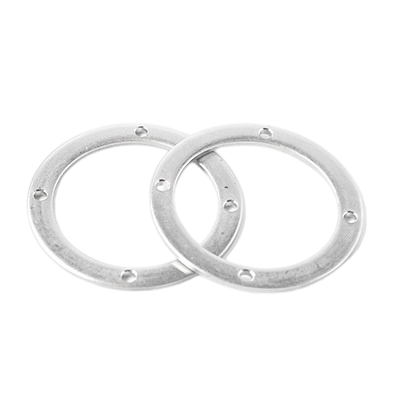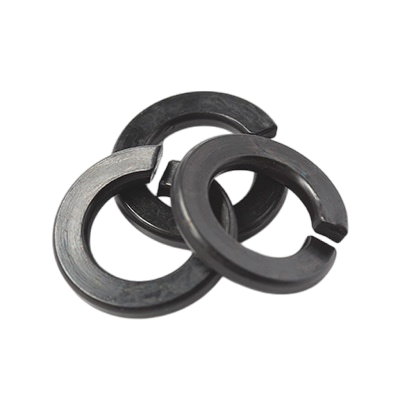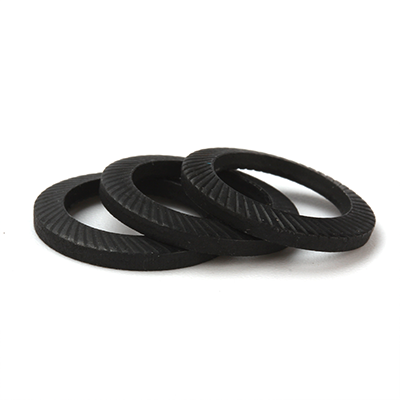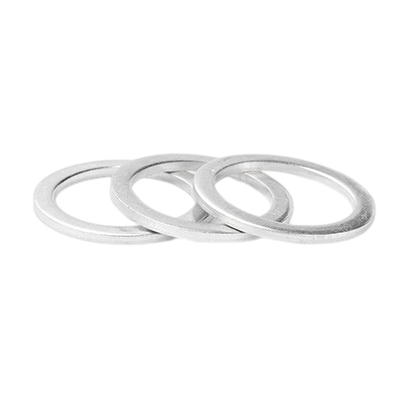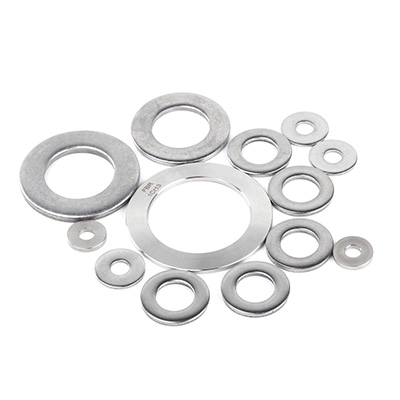
Introduction to Plain Washers
Plain washers are one of the most commonly used fasteners in a wide variety of applications. Despite their simple design, these small components play a critical role in securing fasteners and preventing damage to surfaces. Whether you are working in construction, automotive, or industrial manufacturing, plain washers help distribute the load of a fastener evenly, reducing friction and protecting the materials they are securing. In this article, we will explore the features, benefits, applications, and best practices for using plain washers to enhance the reliability and durability of your fastening systems.
What Are Plain Washers?
A plain washer, also known as a flat washer, is a simple disc-shaped fastener typically made from metal or plastic. It is placed under the head of a bolt or screw to distribute the load and prevent damage to the surface being fastened. Plain washers are designed to work in conjunction with bolts, screws, nuts, and other fasteners to provide added stability, reduce friction, and minimize wear on surfaces. The lack of additional features such as spring action or locking mechanisms distinguishes plain washers from other specialized washers like spring washers or lock washers.
Materials Used in Plain Washers
Plain washers come in a variety of materials, each suited for different environments and application requirements. Below are some of the most common materials used for manufacturing plain washers:
-
Steel Washers: Steel is the most commonly used material for plain washers due to its strength and cost-effectiveness. Steel washers are suitable for general-purpose applications and can handle moderate load-bearing conditions.
-
Stainless Steel Washers: Stainless steel washers offer enhanced corrosion resistance compared to regular steel washers, making them ideal for applications in harsh environments such as marine, chemical, or food processing industries.
-
Brass Washers: Brass washers are commonly used in applications where electrical conductivity and corrosion resistance are important. They are also preferred in industries such as plumbing and HVAC.
-
Plastic Washers: For lightweight or non-corrosive environments, plastic washers can provide an effective solution. They are typically used in electronics, electrical systems, and situations where insulation or noise reduction is required.
-
Aluminum Washers: Aluminum washers are lightweight and resistant to corrosion, making them ideal for use in the aerospace industry and other applications where weight is a critical factor.
Applications of Plain Washers
Plain washers are versatile components that are used in a wide range of applications across various industries. Below are some common sectors where plain washers are essential:
-
Construction: In construction, plain washers are used to secure bolts, screws, and other fasteners in structural elements such as beams, columns, and frameworks. They help prevent the fasteners from loosening over time, ensuring the stability of the structure.
-
Automotive: In the automotive industry, plain washers are used to secure bolts and nuts in engine components, suspension systems, and bodywork. They help protect the surfaces from damage while ensuring a secure and long-lasting connection.
-
Aerospace: Plain washers are critical in aerospace applications, where the secure fastening of parts is crucial for safety. These washers help distribute loads evenly and prevent damage to sensitive components.
-
Electronics: Plain washers are often used in electronics to secure components without damaging delicate circuits or casings. In these applications, non-metallic washers such as plastic or nylon may be preferred for insulation.
-
Marine and Oil & Gas: In marine and oil & gas industries, where exposure to harsh environmental conditions is common, stainless steel or brass plain washers are used to prevent rust and corrosion while maintaining strong, reliable connections.
Benefits of Using Plain Washers
-
Load Distribution: One of the primary functions of plain washers is to distribute the load of the fastener over a larger surface area. This helps prevent localized stress and ensures the longevity of both the fastener and the material being secured.
-
Protection of Surfaces: Plain washers protect the surface of materials from damage caused by the fastener’s head or nut. By providing a smooth interface, they prevent the fastener from digging into the material and causing indentations, especially in softer materials.
-
Increased Stability: When used correctly, plain washers improve the overall stability of a connection by ensuring the fastener remains secure and does not loosen under pressure or vibration.
-
Corrosion Resistance: By choosing the right material for the washer, users can prevent rust and corrosion that can weaken the connection and lead to system failures. Stainless steel, brass, and plastic washers offer excellent resistance to corrosion.
-
Cost-Effective: Plain washers are relatively inexpensive compared to other specialized fasteners, making them an economical solution for a wide range of applications without compromising on performance.
Best Practices for Using Plain Washers
To maximize the effectiveness of plain washers, it is important to follow some best practices during installation and use:
-
Choose the Correct Size: Ensure that the plain washer fits the diameter of the fastener and the hole it is intended to secure. Using an undersized washer may not distribute the load effectively, while an oversized washer may not provide a secure fit.
-
Material Compatibility: Select the washer material that best suits the application. For example, if the environment involves exposure to moisture or chemicals, opt for a corrosion-resistant material like stainless steel or plastic.
-
Avoid Over-tightening: When installing a fastener with a plain washer, avoid over-tightening, as this can cause damage to both the washer and the surface it is securing. Tighten the fastener to the appropriate torque specification to ensure a secure and stable connection.
-
Inspect Regularly: Periodically check plain washers for wear and tear, especially in applications that experience high levels of vibration or mechanical stress. Replacing worn-out washers before they fail can prevent damage to both the fastener and the material being fastened.
Conclusion
Plain washers are a simple yet indispensable component in fastening systems across a variety of industries. By providing load distribution, surface protection, and increased stability, these washers help ensure that connections remain secure and durable over time. Whether you are in construction, automotive, aerospace, or electronics, plain washers can improve the performance and longevity of your fastening systems.
